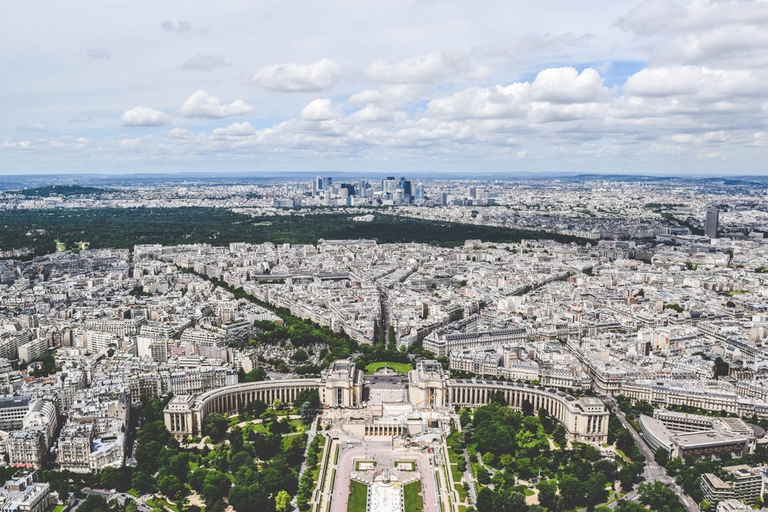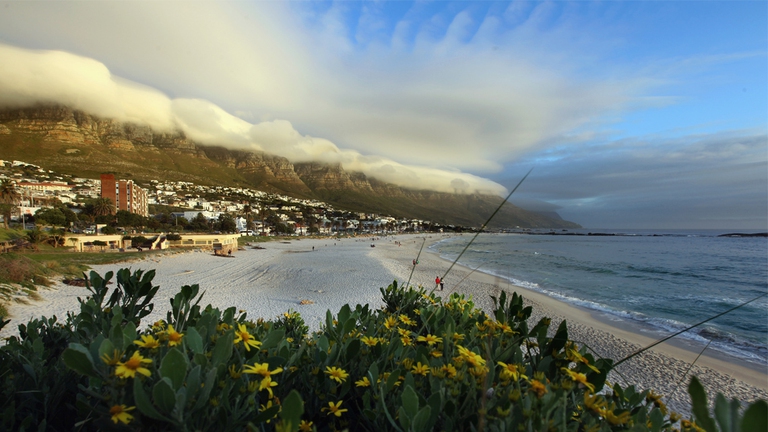
Sharon Lavigne, one of the six winners of the 2021 Goldman Environmental Prize, is fighting to protect her community from plastics corporations.
On 23 October in Paris the mayors of London, Paris, Los Angeles, Copenhagen, Barcelona, Quito, Vancouver, Mexico City, Milan, Seattle, Auckland, and Cape Town committed to a series of ambitious targets to make their cities greener, healthier and more prosperous. By signing the C40 Fossil-Fuel-Free Streets Declaration, the pioneering city leaders pledged to procure only
On 23 October in Paris the mayors of London, Paris, Los Angeles, Copenhagen, Barcelona, Quito, Vancouver, Mexico City, Milan, Seattle, Auckland, and Cape Town committed to a series of ambitious targets to make their cities greener, healthier and more prosperous. By signing the C40 Fossil-Fuel-Free Streets Declaration, the pioneering city leaders pledged to procure only zero-emission buses from 2025 and ensure that a major area of their city is zero emission by 2030. The policies are designed to fight air pollution, improve the quality of life for all citizens, and help tackle the global threat of climate change.
The signatories to the declaration “envision a future where walking, cycling, and shared transport are how the majority of citizens move around our cities.” The cities therefore commit to increase rates of walking, cycling and the use of public and shared transport; reduce the number of polluting vehicles on city streets; lead by example by procuring zero emission vehicles for city fleets, collaborate with suppliers, fleet operators and businesses to accelerate the shift to zero emissions vehicles and reduce vehicle miles in cities.
“I am absolutely committed to tackling the deadly effects of toxic air on Londoners and making London a zero carbon city. That’s why I am incredibly proud that today in London we have introduced the pioneering T-Charge, the toughest emission standard of any city in the world, which will help drive down the number of dirty vehicles polluting our roads and our lungs. We are leading the fight to clean up our filthy air and protect our citizens from the devastating consequences of climate change. I want to make London one of the greenest cities in the world – that’s why I’m putting walking, cycling and zero emission public transport right at the heart of Londoners’ day-to-day lives alongside energy efficient buildings, clean energy and increased recycling.”
“In Copenhagen we believe that citizens have a right to clean air. We therefore have the ambitious goal of becoming the world’s first C02 neutral capital by 2025 and continuously try to improve air quality. This is achieved through a green transition of our transportation, energy production and energy consumption. With this commitment we hope to inspire other cities to act.”
“Cities have to be the real protagonists in the fight against climate change, and to tackle this challenge it’s imperative to have greater powers and a bigger budget. Barcelona is working to gain 165 hectares of green space in the next few years, to triple the number of kilometres covered by bike lanes, to boost public transport, to cut journeys in private vehicles by 21 per cent, and to implement the superblock plan and create more space for pedestrians. In Paris, we once again express our commitment to the climate, set out with over 800 city entities, to cut emissions by 40 per cent and increase urban greenery by 1m2 per inhabitant”.
“Responding to climate change’s threat requires big thinking and bold action. By reaffirming our commitment to a zero emission transportation system, Seattle is proud to join our friends around the world in demonstrating the power of cities to lead on climate.”
“We need structural measures to fight air pollution and its impact on the health of citizens. More than ever before, as mayors of the world cities most committed to tackle environmental challenges, we must set ambitious targets. Milan invests in a better mobility, in particular by strenghthening public transportation and by expanding car, bike and motorbike sharing opportunities. We want cities without polluting vehicles and with much cleaner air. We owe this to our citizens”.
“This is the time for cities to take bold action towards fossil fuel free future. Quito is ready to lead the way and committed to provide a better more resilient, low carbon and sustainable local development for all our citizens.”
“In Auckland, our largest single contributor to greenhouse gas emissions is from transport – around 40 per cent, so signing this declaration signals how serious we are about tackling climate change. With more than one-third of New Zealand’s population and the majority of its growth, Auckland has a key leadership role to play and we are committed to transforming the way our people move and delivering a clean, green city for all.”
Siamo anche su WhatsApp. Segui il canale ufficiale LifeGate per restare aggiornata, aggiornato sulle ultime notizie e sulle nostre attività.
![]()
Quest'opera è distribuita con Licenza Creative Commons Attribuzione - Non commerciale - Non opere derivate 4.0 Internazionale.
Sharon Lavigne, one of the six winners of the 2021 Goldman Environmental Prize, is fighting to protect her community from plastics corporations.
Plastic pollution is airborne too. Microplastics are being carried across continents by the wind, as a recent study reveals.
Levels of particulates in New Delhi in 2020 were once again far above safety thresholds, with extremely serious health consequences for its citizens.
A major oil spill in the Ecuadorian Amazon in April has left the Coca River polluted. The indigenous Kichwa are suing the companies whose pipelines broke.
Molecules that eat up plastic waste, including PET bottles, may soon become widely used as scientists leap ahead in developing new super enzymes.
In Italy’s Land of Fires between Naples and Caserta, activists like Carmen Medaglia are fighting to promote new ways of managing waste.
Toxic substances in Kamchatka’s waters have killed 95% of marine fauna and caused health problems for surfers. The causes, however, are still unknown.
A Magellanic penguin was found lifeless on a Brazilian beach: in its stomach, an N95 face mask. Researchers believe the animal died from ingesting it.
The drop in air pollution during worldwide lockdowns helped prevent thousands of premature deaths. But the situation is returning to pre-crisis levels.









